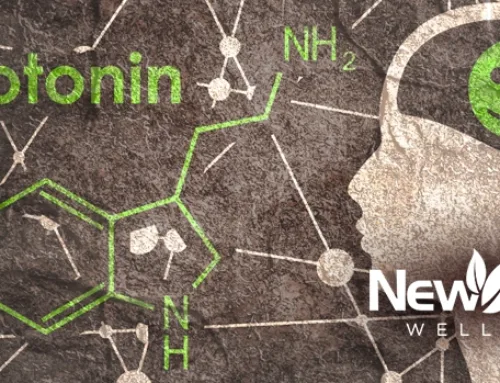Hashimoto’s Thyroiditis is an autoimmune low performing thyroid disease and is one of the most common health issues related to Gluten Sensitivity. With more and more individuals struggling with losing weight or gaining weight primarily in the stomach, it raises awareness to who is allergic or even sensitive to gluten. Today, we’re hoping to shed light on what Hashimoto’s Thyroiditis really looks like in individuals.
Non-celiac gluten sensitivity has a group of symptoms related to the intake of gluten containing foods (including wheat, barley and rye) who are not affected by celiac disease or wheat allergy. In other words, blood tests for celiac disease and wheat allergy tests are not accurate if you have gluten sensitivity.
I had my hormone levels drawn at New Leaf curious to see if I needed hormones. Come to find out my Thyroid was way out of control. After having two kids I thought it was normal to “feel completely drained of energy by 3pm. Dr. Sieman and New Leaf Staff helped me to understand what all my thyroid does. Now New Leaf helps keep an eye on my thyroid levels and I get my weekly vitamin shots to keep my energy levels up and thyroid functioning the way it’s supposed to. I would have never known I had a thyroid issue if I would not have gotten my labs drawn at New Leaf. THANK YOU NEW LEAF!”
– Angela O., New Leaf Wellness Patient, see More Testimonials
Celiac disease is a small intestine inflammatory malabsorption disease with autoimmune features that is triggered and maintained by the ingestion of gluten. 10-30% of people with celiac disease have Hashimoto’s. More on Living with Celiac Disease >
People with Hashimoto’s that follow a gluten free diet tend to have more energy and see improved thyroid T4, TSH, TPOab (Thyroid Peroxidase antibody), TgAb (thyroglobulin antibodies) and Vitamin D3 blood levels.
After more than ten years of dealing with Thyroid symptoms (starting around age 33), I finally have someone who will not only listen, but investigate what’s wrong. I’ve heard too many times that there’s nothing wrong with me, that is in my head, that my tests were “in the normal range”. I’ve even been told it’s because I’m of German descent. Thank you to everyone at New Leaf for simply caring enough to try.
– Kris T., New Leaf Wellness Patient
Get a Food Sensitivity Test done and Thyroid testing to determine your health sensitivities.






